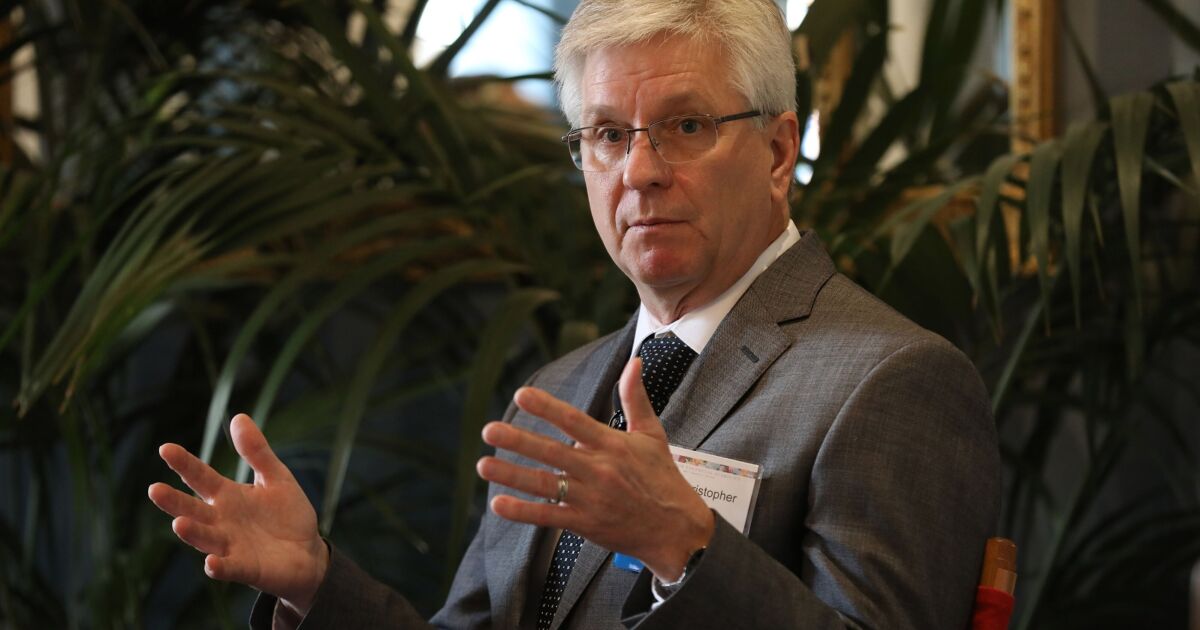
Federal Reserve Governor Christopher Waller said the U.S. central bank should take a cautious and systematic approach when it begins cutting interest rates, a process that can start this year absent a rebound in inflation.
"As long as inflation doesn't rebound and stay elevated, I believe the FOMC will be able to lower the target range for the federal funds rate this year," Waller said at a virtual event hosted by the Brookings Institution on Tuesday.
"When the time is right to begin lowering rates, I believe it can and should be lowered methodically and carefully," he added.
The Fed governor offered some of the most detailed remarks to date around the Fed's intentions to ease policy this year. While Waller showed an openness to cutting rates, his comments also appeared to push back against market expectations for as many as six rate cuts this year.
"With economic activity and labor markets in good shape and inflation coming down gradually to 2%, I see no reason to move as quickly or cut as rapidly as in the past," he said, pointing to previous economic shocks that have precipitated rapid rate cuts.
Treasury yields jumped in the wake of Waller's comments. Traders pared back the probability of a rate cut as soon as March as well as the degree of total policy rate declines seen for the full year.
He said the timing of cuts and the actual number "will depend on the incoming data."
Waller's remarks highlighted his intention to balance risks to both sides of the Fed's mandate and avoid staying restrictive for too long, while also not beginning to reduce rates before their 2% inflation goal was secure. He noted that he needs to see a moderation in consumption and hiring as well as continued low readings on monthly inflation data to bolster the case for a cut.
While Waller said he's becoming more confident that policymakers are "within striking distance" of reaching their 2% inflation target, "I will need more information in the coming months confirming or (conceivably) challenging the notion that inflation is moving down sustainably toward our inflation goal."
If policymakers see a continuation in the trends seen in the real data and inflation data, "we can slowly calibrate the real rate cut down," he said. "If we think we need to move it faster, we can move it faster depending on what the data says. But the key is we have the flexibility that we can be methodical and careful."
He added that once the Fed is relatively convinced that inflation is sustainably near the central bank's 2% target, policymakers can "start thinking how fast we want to cut, or how long, what the pace is, or how big."
As for the central bank's balance sheet, Waller said it would be reasonable to start thinking about slowing the pace of asset runoff "some time this year."
Hiring trend
Waller said the surprising strength in the December jobs report was "largely noise" against a trend of ongoing moderation. He noted a number of 2023 jobs reports have been revised lower, and "there is a good chance December will be revised down." The Fed governor also said he will be closely watching scheduled CPI revisions due next month.
Government figures out this month showed employers added 216,000 jobs in December — exceeding expectations — while inflation picked up. The consumer price index increased 3.4% in the year through December, the most in three months, fueled by stubborn services costs and a pause in a months-long decline in goods prices.
Waller described current financial conditions as restrictive and said "the setting of policy needs to proceed with more caution to avoid over-tightening."
"I believe policy is set properly," he said. "It is restrictive and should continue to put downward pressure on demand to allow us to continue to see moderate inflation readings."
Waller last spoke on the economy on Nov. 28, two weeks before the Fed's December meeting. At the time, he said, "I am increasingly confident that policy is currently well positioned to slow the economy and get inflation back to 2%."



